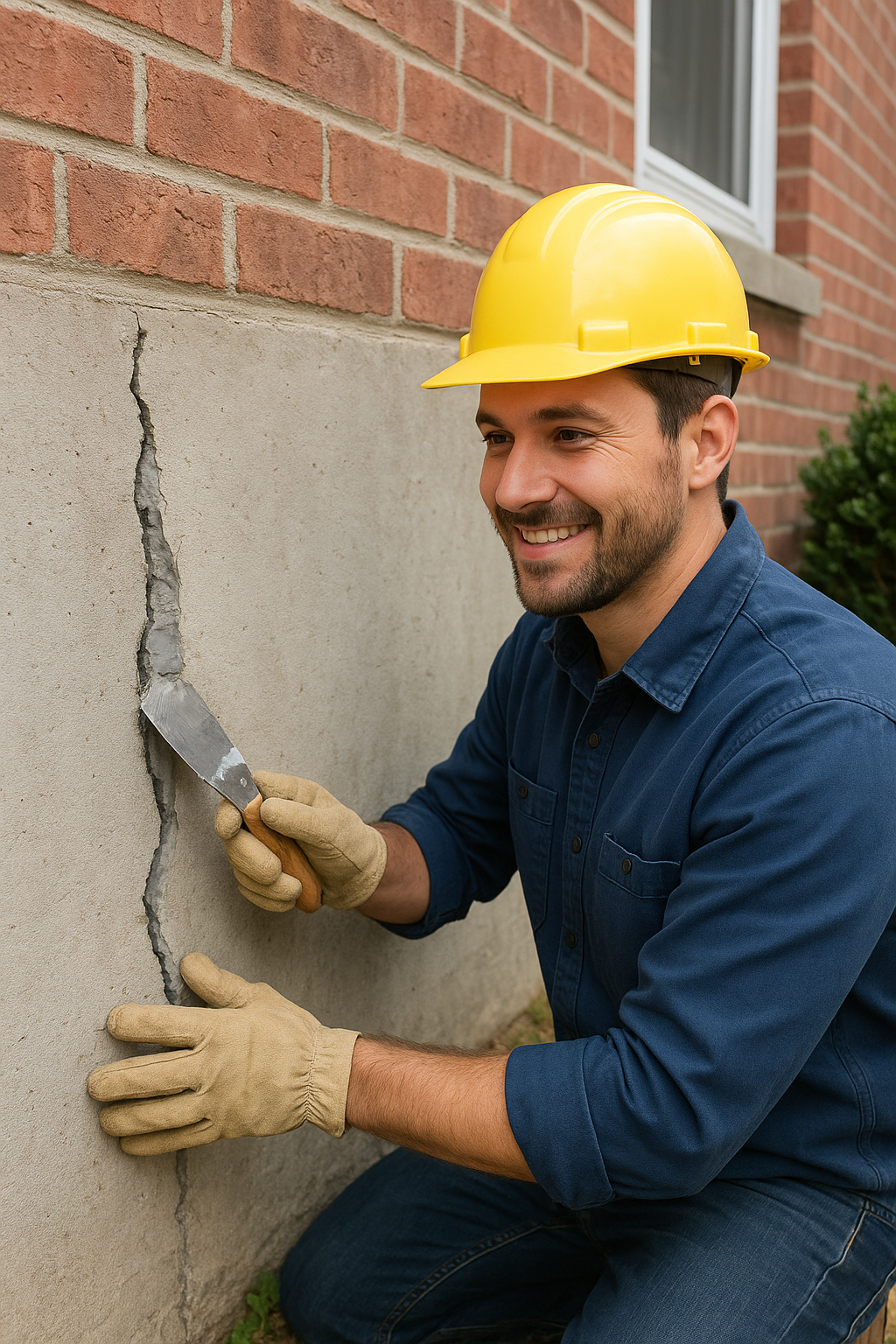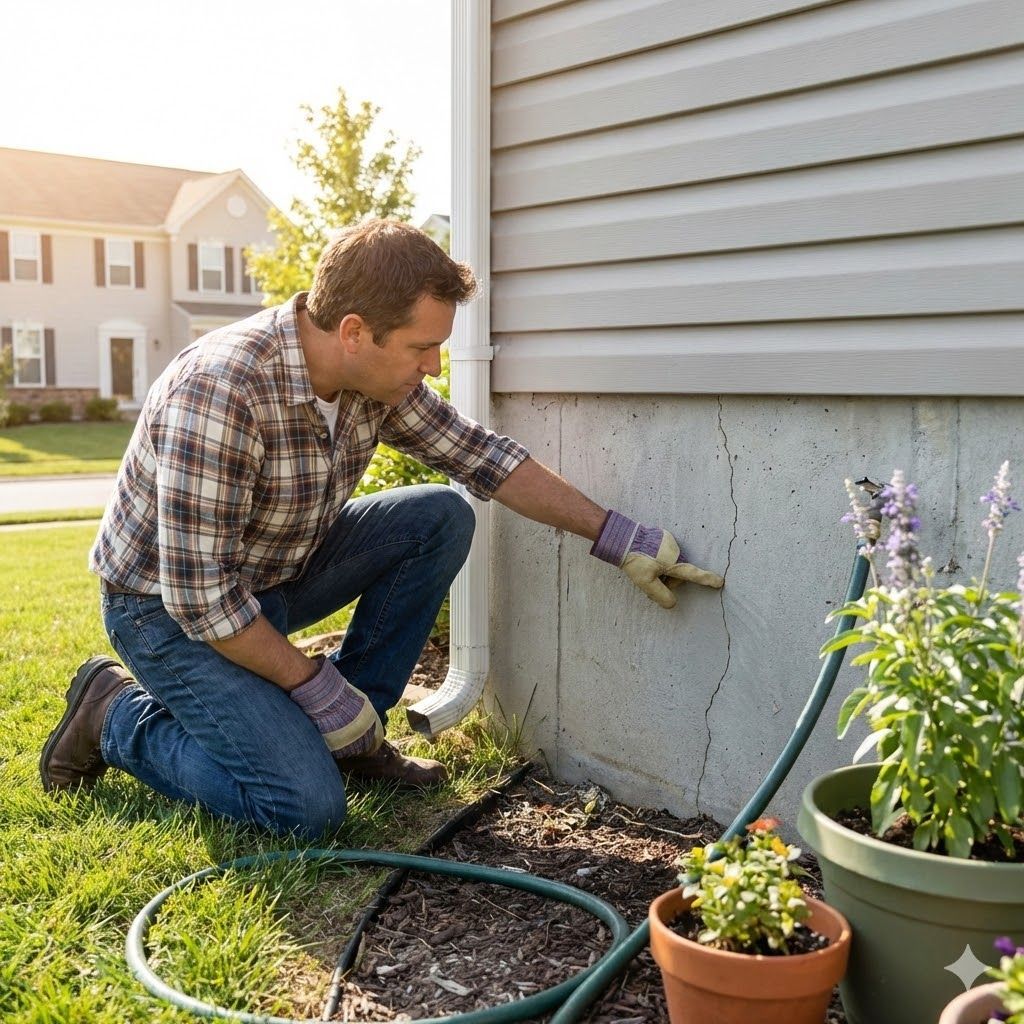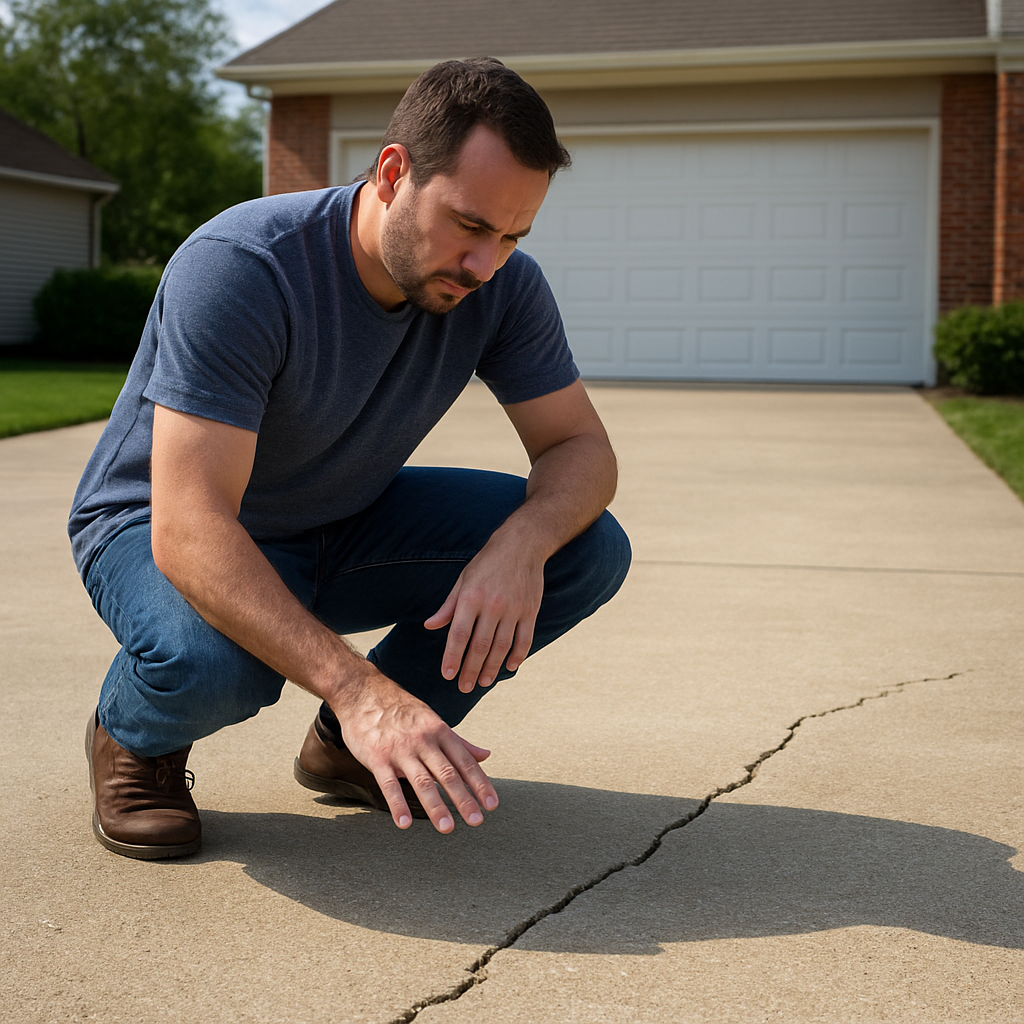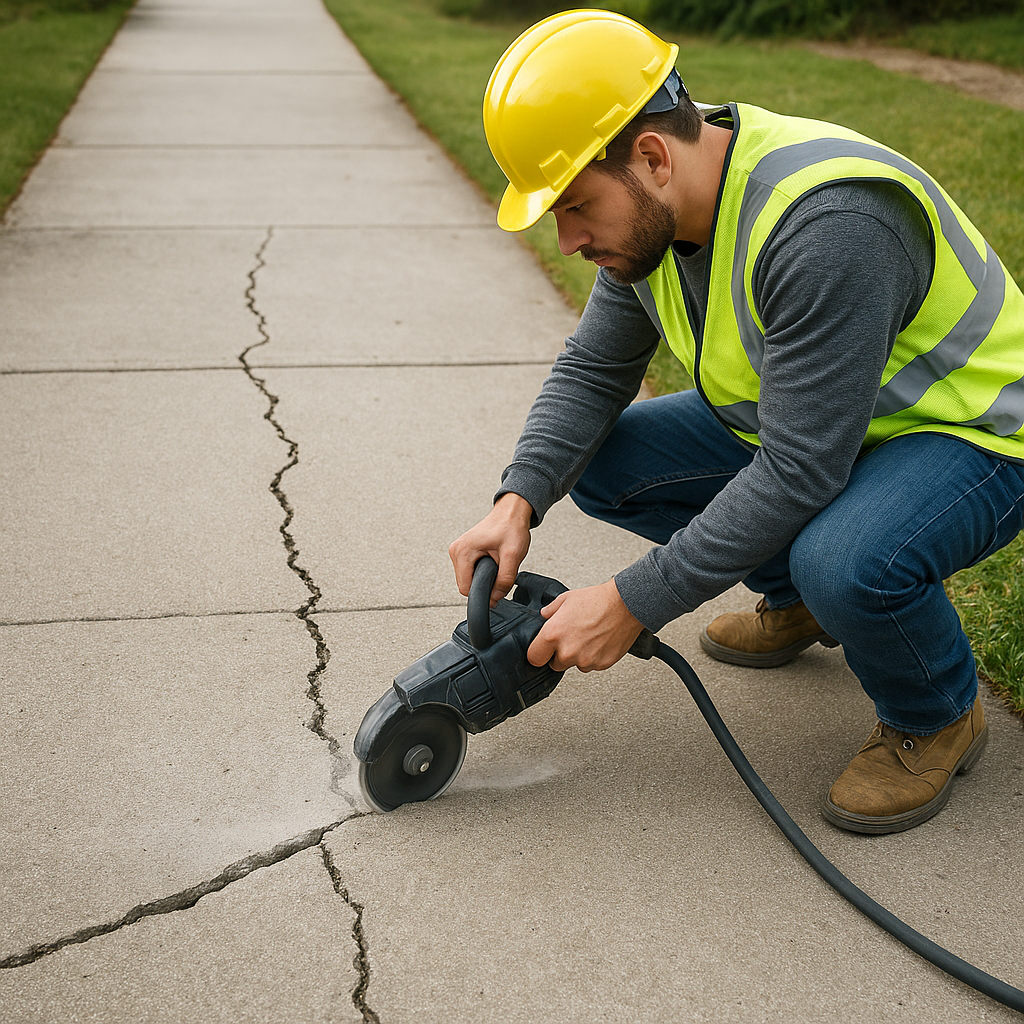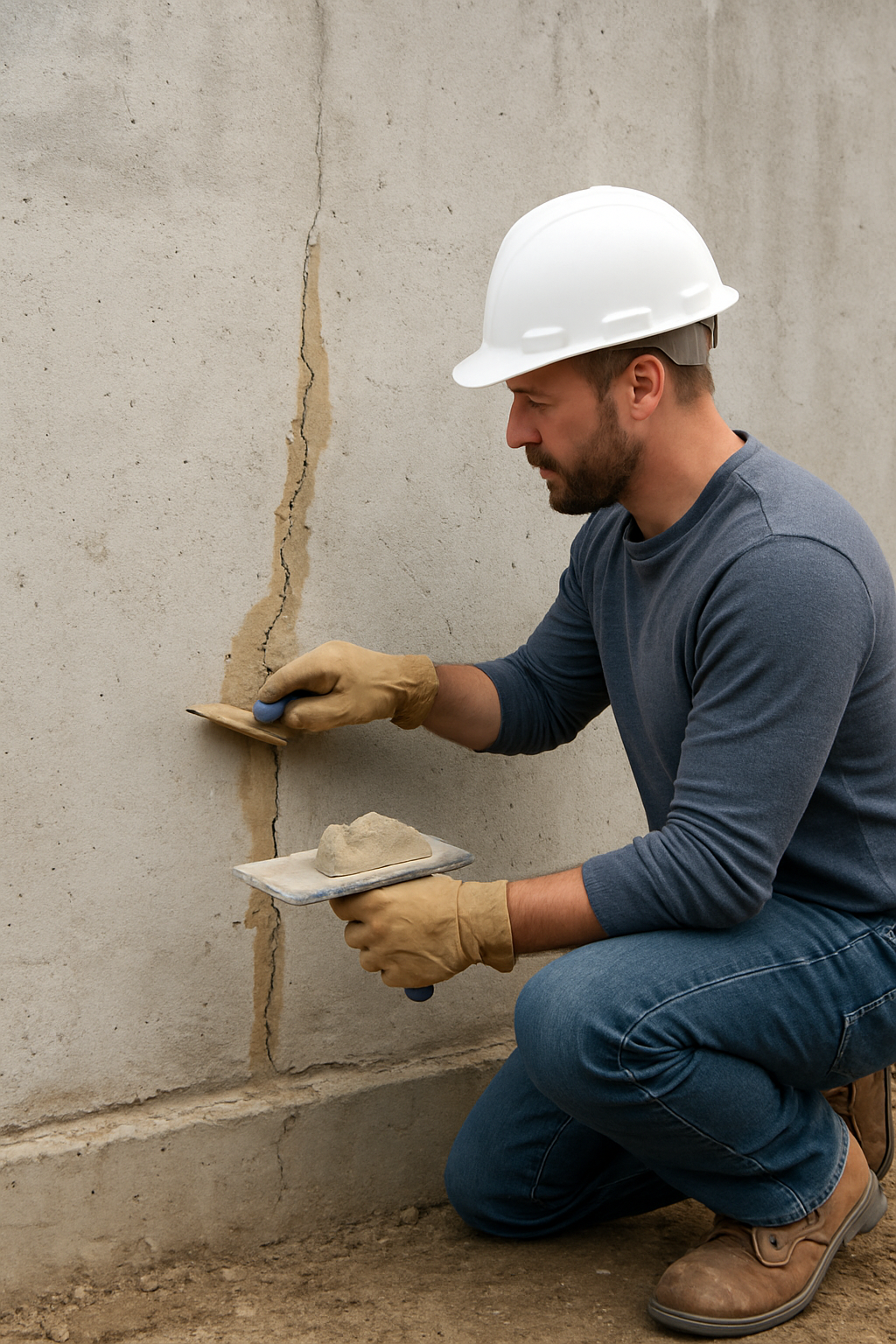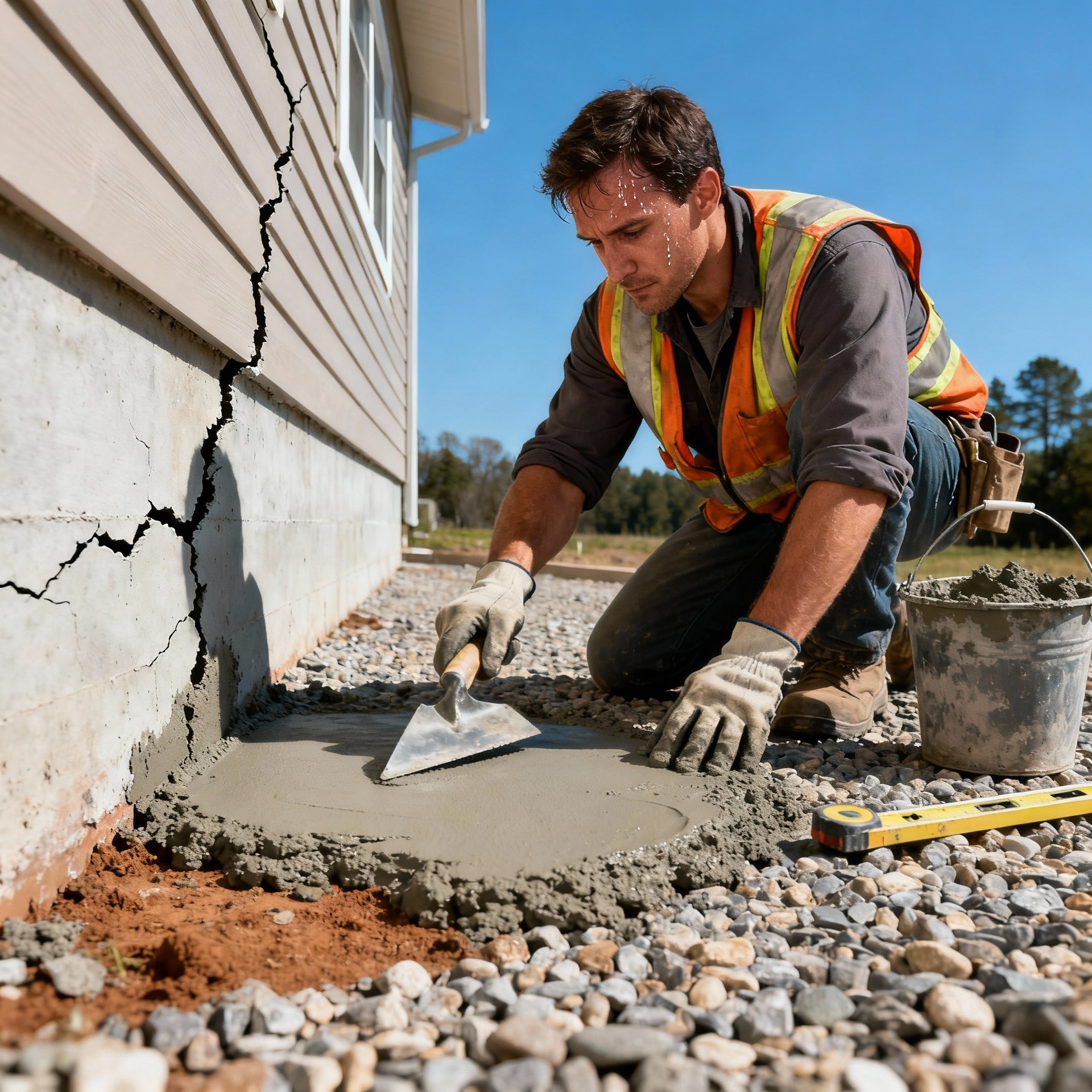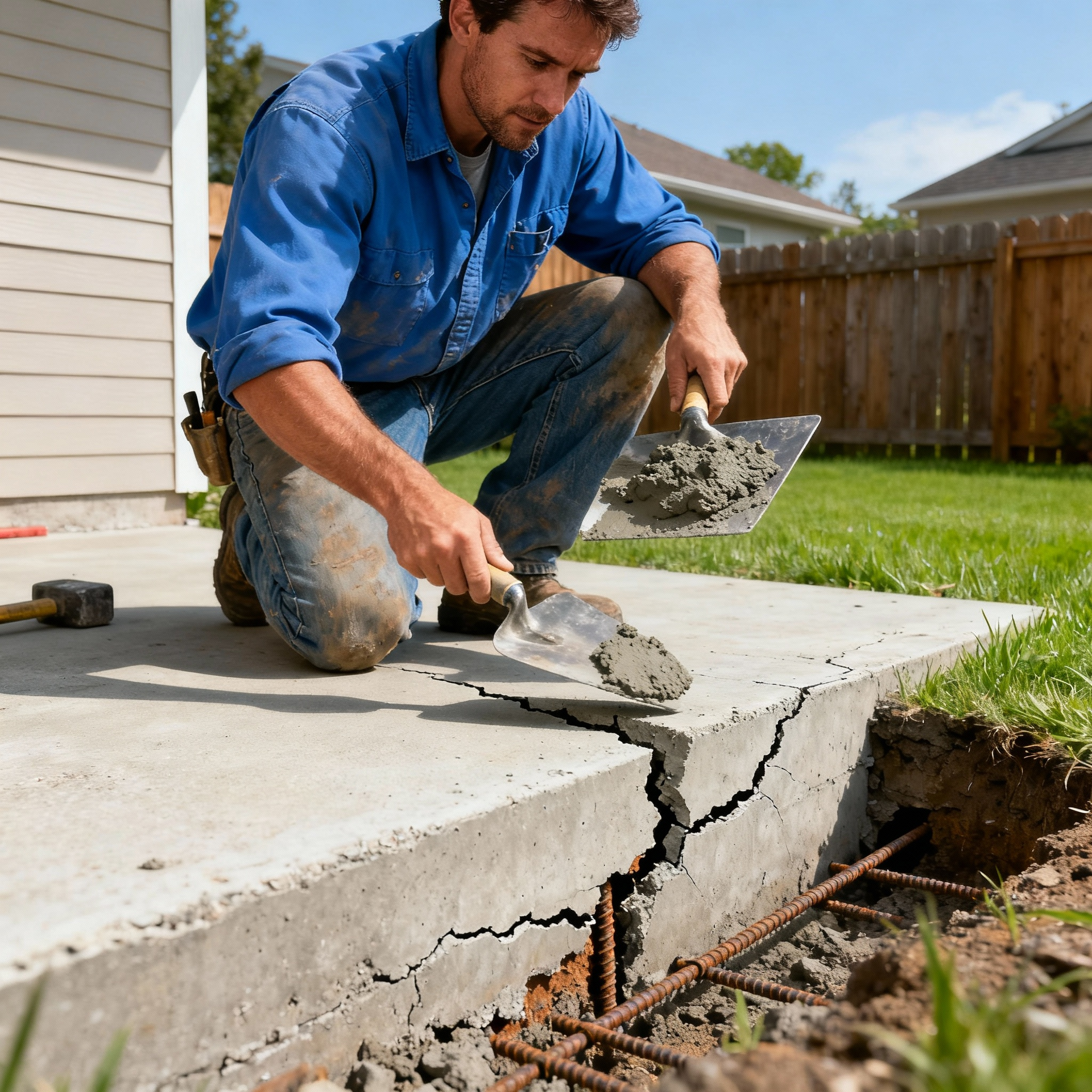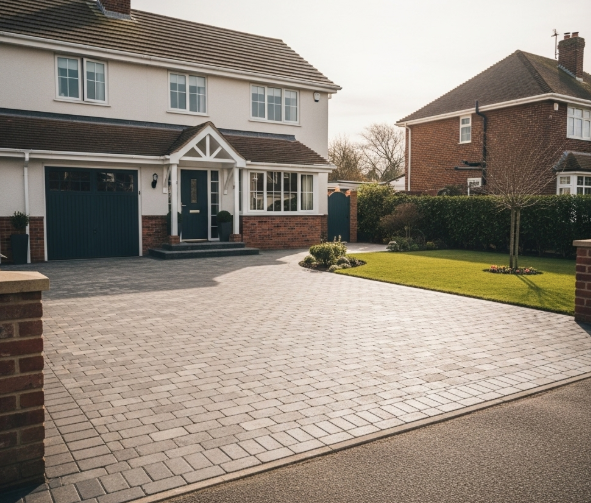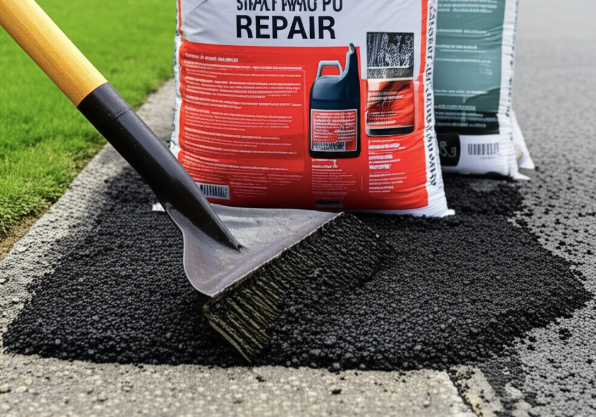Choosing the Best Foundation Crack Repair Specialists Near You
(How-To Guide for Homeowners)
1. Why You Need a Specialist, Not Just Any Contractor
Many homeowners try DIY fixes (epoxy, patching, etc.) for smaller cracks. But when those fixes don’t address the root cause—soil shift, drainage problems, foundation movement—they often fail. A specialist understands structural behavior, soil engineering, and repair techniques.
As one foundation repair pro put it:
“Putting a bandage on a foundation crack without fixing what’s pushing on it is like patching a leaky roof without addressing the rotted rafters.”
Also, foundation repairs often cost thousands. According to Angi, typical foundation repair costs range from
$2,220 to $8,112, with the average around
$5,166. Angi
And for just crack repairs (when not structural), you might expect
$250 to $800+ per crack. HomeGuide
Because of those figures, you want someone who does the job right the first time.
2. Key Signs You Need a Foundation Crack Repair Specialist
Before you call someone, check for warning signs that go beyond cosmetic cracks:
- Horizontal or stair-step cracks in block or poured walls
- Cracks wider than 1/8 inch (0.125")
- Doors or windows that no longer open/close properly
- Uneven or sloping floors
- Interior wall cracks that grow over time
- Water intrusion or dampness near the foundation
If you see any of these, it’s time to bring in a specialist—don’t delay.
3. How to Vet Foundation Crack Repair Specialists
Here’s a checklist to help you filter through candidates:
✅ Credentials & Licensing
- Ask for state or local contractor licenses
- Check if they carry liability insurance
- Ask whether they follow local building codes
✅ Structural Engineer Involvement
A good specialist either partners with or consults a structural engineer. The engineer’s report ensures the repair method addresses structural causes—not just surface damage.
✅ Methods & Technologies Explained
A trustworthy specialist should explain options like:
- Crack injection (epoxy or polyurethane)
- Carbon fiber reinforcement
- Helical piers or underpinning
- Wall anchors or tiebacks
They should tell which method fits your situation and why.
✅ References & Past Work
Ask for local references. Go see jobs they’ve done. Reliable firms will show photos, warranties, and before/after results.
✅ Warranty & Guarantees
Ask: “What guarantee do you offer?” A solid specialist will provide a workmanship warranty and might stand behind their work for years.
✅ Permits & Inspections
Ensure the specialist will handle local permits, inspections, and approvals. If they sidestep this, it’s a red flag.
✅ Transparent Estimates
The estimate should break down: labor, materials, permit costs, contingency. Avoid vague quotes.
4. Typical Repair Methods & When They Apply
Below is a layman-friendly overview of common methods a foundation crack repair specialist may propose:
Method
Best For / Use Case
Strengths
Considerations
Crack Injection (Epoxy or Polyurethane)
Non-structural vertical or hairline cracks
Less invasive, cost-effective
Doesn’t fix underlying movement
Carbon Fiber Strips
Bowing walls or cracks showing lateral pressure
Strong reinforcement, minimal disruption
Surface method; may need additional support
Wall Anchors
Soil pressure pushing walls inward
Can stabilize walls and reverse movement
Requires excavation
Helical Piers / Underpinning
Foundation settlement or shifting
Solid deep support, addresses load
More expensive, invasive
Complete Replacement or Rebuild
Severe structural failure
Full reset
High cost, major disruption
A good specialist will recommend the least invasive method that still solves the problem long-term.
5. How to Compare Multiple Quotes
When you receive multiple bids from foundation crack repair specialists, here’s how to compare:
- Scope — Are you comparing apples to apples? (same methods, same guarantee, same engineering plan)
- Total Cost & Payment Terms — Does the quote include permits, cleanup, and extras?
- Timeline — How long will the repair take? What’s the disruption?
- Warranty Terms — Length and inclusions (materials, labor)
- Communication & Trust — Who explains clearly, listens, and responds?
Don’t go only for the lowest bid. Choose the one that gives you confidence in quality.
6. What to Expect During the Repair
Here’s a rough sequence:
- The specialist will dig (if needed) to expose foundation walls.
- Install supports (piers, anchors) or prep cracks.
- Perform structural work (lifting, stabilizing).
- Inject or reinforce cracks.
- Perform drainage or grading corrections around the house.
- Clean up and apply finishing touches.
- Final inspection and warranty paperwork.
Be prepared for noise, heavy machinery, and some landscape disruption during work.
7. After the Repair: What You Must Do
- Water Management: Maintain proper grading, downspouts, gutters.
- Monitor Cracks: Mark and date any cracks to see if they reappear.
- Scheduled Inspections: Periodic checkups (every few years) by a pro.
- Avoid Overwatering Plants Near Foundation: Roots and moisture swings can stress the structure.
FAQ Section
Q: Can I fix small cracks myself?
A: If the crack is under 1/8 inch, vertical, and not growing, you may patch it with epoxy or sealant. But that’s cosmetic—if it worsens, call a specialist.
Q: Will my home insurance cover foundation repair?
A: Usually not. Insurance treats it as wear and maintenance. Only in rare cases (e.g. a covered event like a pipe burst) might they cover parts.
Q: How long does a foundation crack repair last?
A: If done well, it can last decades. But soil movement, water, and improper drainage can still cause new issues.
Q: Is a free estimate a red flag?
A: Not necessarily. Many specialists offer free inspections. But be wary if they pressure you into expensive work immediately.
Q: When should I worry most?
A: Horizontal cracks, bowing walls, or cracks that widen quickly are serious. Don’t wait—call a specialist right away.
Conclusion & Call to Action
Choosing the right Foundation Crack Repair Specialists can make the difference between a short-term fix and a lasting solution. Use the checklist above, ask smart questions, and review multiple bids. Your home is too valuable to trust to guesswork.
If you’d like help narrowing your choice or want us to connect you with a trusted local specialist, feel free to
contact us or visit our
services page. Don’t wait—take action now and protect your home’s foundation for the long run.
